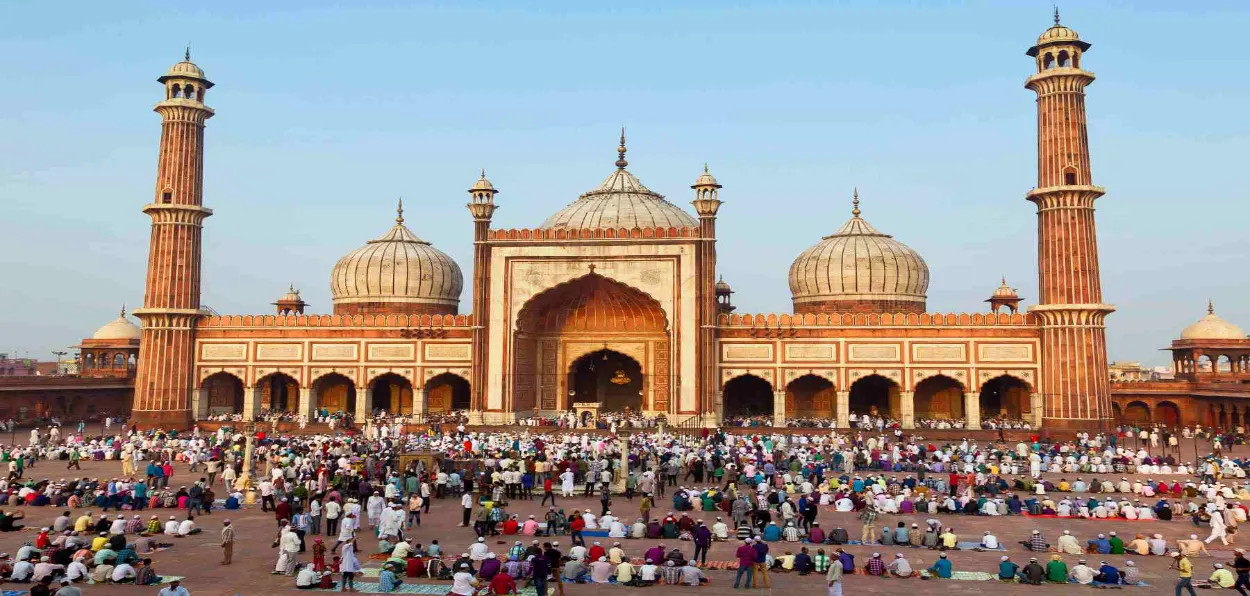
Eman Sakina
The mosque, or masjid, has been the spiritual and social nucleus of Muslim communities since the time of the Prophet Muhammad. More than just a place of ritual prayer, the mosque historically served as a hub for education, governance, welfare, and unity. In the modern world, as societies become increasingly diverse, urbanised, and technologically driven, the mosque continues to play a pivotal role—adapting to new challenges while preserving its timeless essence as the heart of Islamic life.
Friday Musings
From the establishment of the first mosque in Madinah—Masjid al-Nabawi—by the Prophet Muhammad (peace be upon him), the mosque was never limited to the act of worship alone. It was the centre of community organisation, a court of justice, a school for knowledge, a meeting place for consultation (shura), and a refuge for the poor and needy. The Prophet himself would welcome delegations, teach companions, and resolve disputes within the mosques' open courtyard, setting the precedent for its holistic social function.
This foundational model serves as an enduring blueprint, reminding modern Muslim societies that a mosque’s mission extends far beyond the prayer mats.
At its core, the mosque remains the house of Allah—a sanctuary for remembrance (dhikr), reflection, and prayer (salah). In a fast-paced, materialistic world and amid moral confusion, mosques offer a spiritual retreat and a space to reconnect with faith, find peace, and strengthen a relationship with God. The five daily prayers performed in congregation nurture discipline, humility, and a sense of belonging.
Friday sermons (khutbahs) further serve as moral guidance for the community, addressing both religious and contemporary issues in light of the Qur’an and Sunnah. When delivered thoughtfully, these sermons help align Muslim ethics with modern realities—promoting tolerance, honesty, compassion, and civic responsibility.
The mosque has always been synonymous with learning. Early Islamic scholars, such as Imam Malik and Al-Ghazali, taught within mosques, making them the first universities of the Muslim world. In the 21st century, this tradition continues in various forms—through Qur’an classes, Arabic lessons, and lectures on Islamic jurisprudence and ethics.
However, modern mosques increasingly combine religious and secular education. Many host workshops on financial literacy, health awareness, environmental responsibility, and interfaith dialogue. By equipping Muslims with both spiritual and practical knowledge, the mosque empowers them to contribute meaningfully to their societies while remaining grounded in faith.
The Qur’an and Hadith repeatedly emphasise compassion and care for the less fortunate. Mosques operationalise this teaching through charitable activities—organising food drives, supporting orphans, aiding refugees, and providing financial relief for the needy.
In many countries, mosques have become community centres that offer counselling, marriage support, youth mentorship, and mental health assistance. During crises—such as natural disasters or pandemics—mosques often transform into centres of relief and coordination, demonstrating Islam’s emphasis on ummah (community solidarity) and rahmah (mercy).
In an era marked by social fragmentation, cultural divisions, and political polarisation, mosques play a vital role in building unity. Congregational worship brings people of all backgrounds together under one roof, eliminating distinctions of race, wealth, and social status. This egalitarian spirit reflects the Prophet’s saying:
“All mankind is from Adam and Eve; an Arab has no superiority over a non-Arab, nor a non-Arab over an Arab.” (Hadith, Musnad Ahmad)
By hosting interfaith dialogues, community forums, and cultural events, mosques foster understanding between Muslims and non-Muslims alike. They act as bridges between communities, dispelling stereotypes and promoting mutual respect.
One of the most critical responsibilities of modern mosques is to engage the youth. Many young Muslims today face identity crises, peer pressure, and ideological confusion. A welcoming mosque environment—with youth-friendly programs, sports activities, skill-development workshops, and volunteer opportunities—can help them channel their energy positively and stay connected to their faith.
When mosques empower young people to take leadership roles, they ensure the continuity of Islamic values and encourage innovation rooted in ethical principles.
The digital age has transformed how mosques operate and reach their communities. Livestreamed sermons, online Qur’an classes, and social media outreach allow mosques to transcend physical boundaries. This digital inclusion ensures that even those living in remote areas or non-Muslim-majority countries can stay spiritually connected.
However, with these advancements comes the responsibility to use technology ethically—spreading knowledge, unity, and compassion rather than division or misinformation.
While the potential of a mosque is vast, it faces several modern challenges—such as declining youth engagement, funding constraints, and the need for better-trained religious leaders who understand contemporary issues. Some mosques struggle with internal divisions or outdated administrative models that limit inclusivity.
Yet, these challenges also open doors for reform. Embracing professional management, gender-inclusive spaces, transparent governance, and community partnerships can revitalise the role of a mosque as a progressive, inclusive, and dynamic institution.
A thriving mosque nurtures responsible citizens who contribute to the moral and social fabric of their Quom. Through civic education, environmental initiatives, and charitable collaborations, mosques encourage Muslims to serve humanity. This active engagement reflects the Qur’anic principle: “You are the best nation produced for mankind. You enjoin what is right and forbid what is wrong and believe in Allah.” (Qur’an 3:110)
ALSO READ: Syed Shabir Ahmed Gilani recalls Paharis' struggle for ST status in J&K
By instilling social responsibility, mosques remind Muslims that faith is not confined to personal worship but must manifest in actions that benefit society at large.
